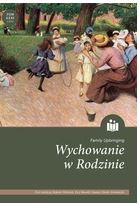Życie codzienne rodziców dzieci polskich i ukraińskich z zaburzeniami ze spektrum autyzmu. Doniesienie z badań
Everyday life of parents of Polish and Ukrainian children with autism spectrum disorders. Research report
Author(s): Anna BorzęckaSubject(s): Social Sciences, School education, Sociology of Education
Published by: Zakład Historii Edukacji w Instytucie Pedagogiki Uniwersytetu Wrocławskiego
Keywords: a child with autism spectrum disorder; parents; family; difficult behaviors; areas of parents’ everyday experiences
Summary/Abstract: Introduction. The birth of a child on the autism spectrum causes far-reaching changes in the life of the entire family. This is a problem for both Polish and Ukrainian families. The problems are many, starting from the child’s diagnosis through various areas of everyday life. Aim. The aim of the research was to learn about the individual experiences in everyday life of parents of children with autism spectrum disorder of Polish and Ukrainian origin, to examine the parents’ experiences during the course of pregnancy, childbirth, and early development, to making a diagnosis, determining the child’s behavior, and areas of everyday life that concern changes in the parents’ lives. Methods and materials. The article presents the results of qualitative research of an interpretive nature, conducted using an individual open interview. The research included parents (Polish and Ukrainian) of children with autism spectrum disorder (five Polish and five Ukrainian children). Results. Based on the analysis of the statements of parents, most often mothers, three areas of experience were distinguished, reflecting the experiences that constitute the everyday life of parents of children on the autism spectrum. The first Area of Experience concerned the course of pregnancy, childbirth, and early developmental experiences, as well as everyday concerns about diagnosis. The second Area of Experience concerned child behavior that constitutes the greatest problem in the everyday life of Polish and Ukrainian parents, and the Third Area of Experience concerned changes in everyday life and the significance of these changes. Conclusion. All the children studied were diagnosed before the age of three or four. Most often, mothers take care of their child, who has been diagnosed with autism spectrum disorder. Despite anxiety and stress, they try to cope with this difficult situation. A significant problem in the lives of parents is the child’s behavior, most commonly aggression, auto-aggression, auto-stimulation, disturbed sleep, epilepsy, or uncontrolled escapes. In Ukrainian children, the above-mentioned behaviors have intensified. A change in everyday life is the organization of work at home. Almost all mothers are concerned for the future of their child. For Ukrainian mothers, an important change was leaving their country, parting with their husbands, family, and not knowing the Polish language.
Journal: Wychowanie w Rodzinie
- Issue Year: XXXI/2024
- Issue No: 2
- Page Range: 315-333
- Page Count: 19
- Language: Polish

